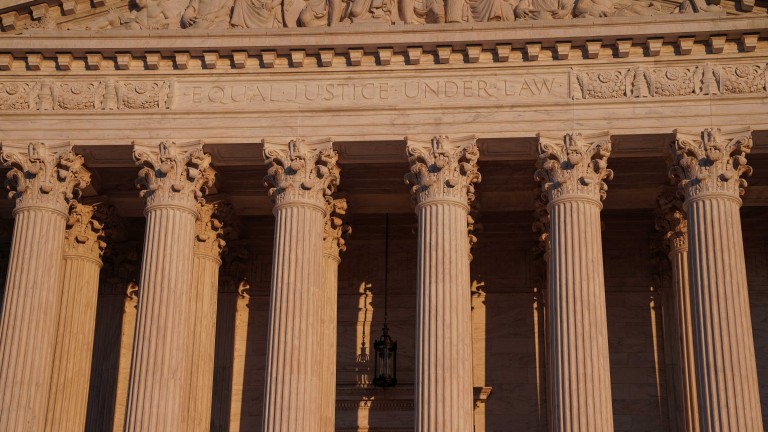Oct 19, 2022 | Our Purpose
Bridging the access to justice gap with legal pro bono

Helen Respass, Senior Legal Editor, Practical Law
Millions of people in the United States struggle daily with legal issues that negatively impact their basic human needs. In criminal cases, defendants generally have a right to legal counsel if they cannot afford it. However, in civil matters, there is no right to counsel, even when they involve life-changing issues ranging from eviction, foreclosure, job termination, discrimination, and denial of health care to domestic violence, child custody, and divorce.
Some people are forced to stumble through the legal system without the legal information, advice, or representation needed to enforce their rights. They may miss work to file forms that are thrown out for being incorrect or incomplete. If they show up in court, they may be too intimidated to respond to opposing counsel’s arguments.
Or, they may forgo legal action completely because they find the system too overwhelming or expensive. These scenarios and others like them illustrate how difficult it is for many to find access to justice.
The access to justice gap
Access to justice describes the ability of any person to use the legal system to advocate for themselves and their interests. However, the legal system is extremely complex and can be difficult to navigate. For those unable to afford an attorney, access to the court system and the justice it can provide are limited. This justice gap is the difference between the legal needs of low-income individuals and the resources available to meet those needs.
The numbers tell a clear story about the importance of equal, meaningful access to legal representation and its role in ending poverty, combating discrimination, and creating opportunity.
In immigration cases, the Study Group on Immigration Representation found that among immigrants in New York who were released or never detained, 74% of represented immigrants had successful outcomes, compared to only 13% of unrepresented immigrants. The American Bar Association found that when unaccompanied children are unrepresented at removal hearings, only 15% of the cases win legal relief, but if they have an attorney, over 73% can remain in this country.
In landlord-tenant cases, the National Coalition for a Civil Right to Counsel reviewed studies on tenant representation and found that:
- In a Massachusetts project providing full representation to low-income tenants, 90% of closed cases resulted in positive outcomes, with 70% of tenants remaining in their homes and 20% having more time to find a place to live.
- In California, fully represented tenants stayed in their units three times as often as those receiving limited or no legal assistance.
- In Denver, Colorado, represented tenants remained in their homes 70%–100% of the time, compared to 32% of unrepresented tenants.
The importance of legal pro bono
The number of people who need legal services is staggering. According to the Legal Services Corporation’s 2022 Justice Gap Study, low-income Americans do not get enough — or any — legal help for 92% of their substantial civil legal problems.
Pro bono plays an important role in filling this legal need. The term pro bono comes from the Latin pro bono public, which means “for the public good.” While the term generally indicates “the offering of free services,” for the legal profession it carries more significance. Pro bono is both a strategy and an opportunity to promote a justice system that is fair and accessible to everyone, regardless of their income or circumstances.
Many attorneys view pro bono as an ethical responsibility to meet the legal needs of underserved and vulnerable communities. Attorneys empower the disadvantaged by providing pro bono legal services directly to people in need and to the non-profit organizations that serve them, as well as through training and legal representation on larger policy issues that drive positive social change for marginalized groups.
In the Thomson Reuters Foundation’s 2020 TrustLaw Index of Pro Bono, 96% of respondents indicated their main justification for doing pro bono work was to give back to their communities. This motivation has led to increased pro bono activities in both law firms and corporate law departments. According to the Pro Bono Institute’s Law Firm Pro Bono Challenge, in 2019 some 127 firms dedicated more than 4.9 million hours to pro bono work.
Legal pro bono is one part of the equation
Ultimately, however, pro bono is only one part of a larger, integrated solution to ensuring equal access to justice. There is also a critical need for properly funded legal aid and legal service organizations — and a more user-friendly and accessible court system with simplified legal processes and technology to make it easier for individuals to navigate the legal system on their own.
On top of that, advocacy organizations must continue their work to dismantle systemic inequities that negatively impact our most vulnerable populations — those living in poverty, people of color, women, immigrants, the elderly, people with disabilities, and LGBTQ+ individuals.
Learn more about how Thomson Reuters supports pro bono legal work globally.


